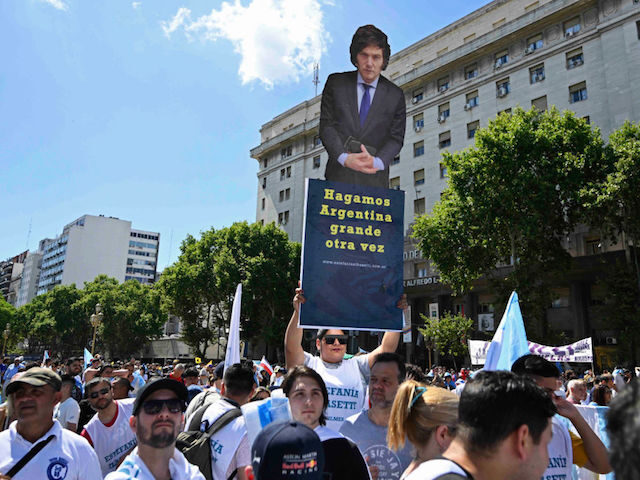Economy Minister Luis “Toto” Caputo announced over the weekend that Argentina registered a roughly $620 million financial surplus in January, the first positive financial result of its kind experienced by the South American country in 12 years.
The surplus, according to the Argentine government, is the outcome of a primary surplus and the payment of interest on the public debt. January’s results are the first surplus since August 2012 and the first January surplus since 2011.
“This is the first time since August 2012 that the National Government spends less than it collects, and that debt interest payments do not leave the public accounts in the red,” a statement from the Office of the President of Argentina read.
— Oficina del Presidente (@OPRArgentina) February 17, 2024
“The fiscal surplus benefits all Argentines; it allows ending with the emission, starting to reduce inflation and charting the way for tax reduction,” The statement continued. “This is the program that President Javier Milei promised to the Argentine people, and the one that is being carried out despite the constant attack of those who see their privileges in danger.”
Argentine President Javier Milei celebrated the announcement on his social media. “Let’s go Toto! Zero deficit is non-negotiable. Long live liberty, damn it!” his message read.
VAAAAAAAAMOOOOOO TOTO…!!!
El déficit cero no se negocia.
VIVA LA LIBERTAD CARAJO https://t.co/SfkErs95KS— Javier Milei (@JMilei) February 16, 2024
“Thank you Mr. President for so much conviction to put an end to the populist lie,” Caputo wrote in response.
Upon taking office, Milei has spearheaded drastic “shock therapy” measures to avert a complete collapse of Argentina’s precarious economy after nearly two decades of socialist policies and out-of-control government spending. The last socialist president, Alberto Fernández, left Argentina’s finances at the brink of total ruin, with inflation rates hovering at 160 percent at the time of Milei’s December 10 inauguration.
The measures began with the signing of a Necessity and Urgency Decree (DNU), a special type of executive order in Argentine law, which modified or removed roughly 350 socialist policies as part of Milei’s first step to deregularize Argentina’s economy.
The larger bulk of Milei’s reforms, which is yet to be implemented, is included in a massive omnibus bill that, after being initially approved by the lower house of the Argentine Congress in February, was rejected on an article-by-article vote some days later, forcing the project to return to committee from the full Congress.
A “zero deficit” goal, which Milei and Caputo have insisted is a “non-negotiable” matter, is one of the key terms of Argentina’s reviewed agreement with the International Monetary Fund (IMF) regarding its roughly $44 billion debt to the organization, in addition to a primary surplus in 2024 equivalent to two percent of the nation’s gross domestic product (GDP).
Milei told local Radio Rivadavia a week ago that Argentina will go through the “hardest” moment of the fall of its economy between March and April — but that then the nation will experience a “rebound.”
“You’re going to do a sort of ‘V’, a first stretch falling, with the hardest moment around March-April, which is when you hit bottom and there you start to bounce back, and when you lift the [currency exchange control restrictions], the economy shoots forward,” Milei said.

COMMENTS
Please let us know if you're having issues with commenting.